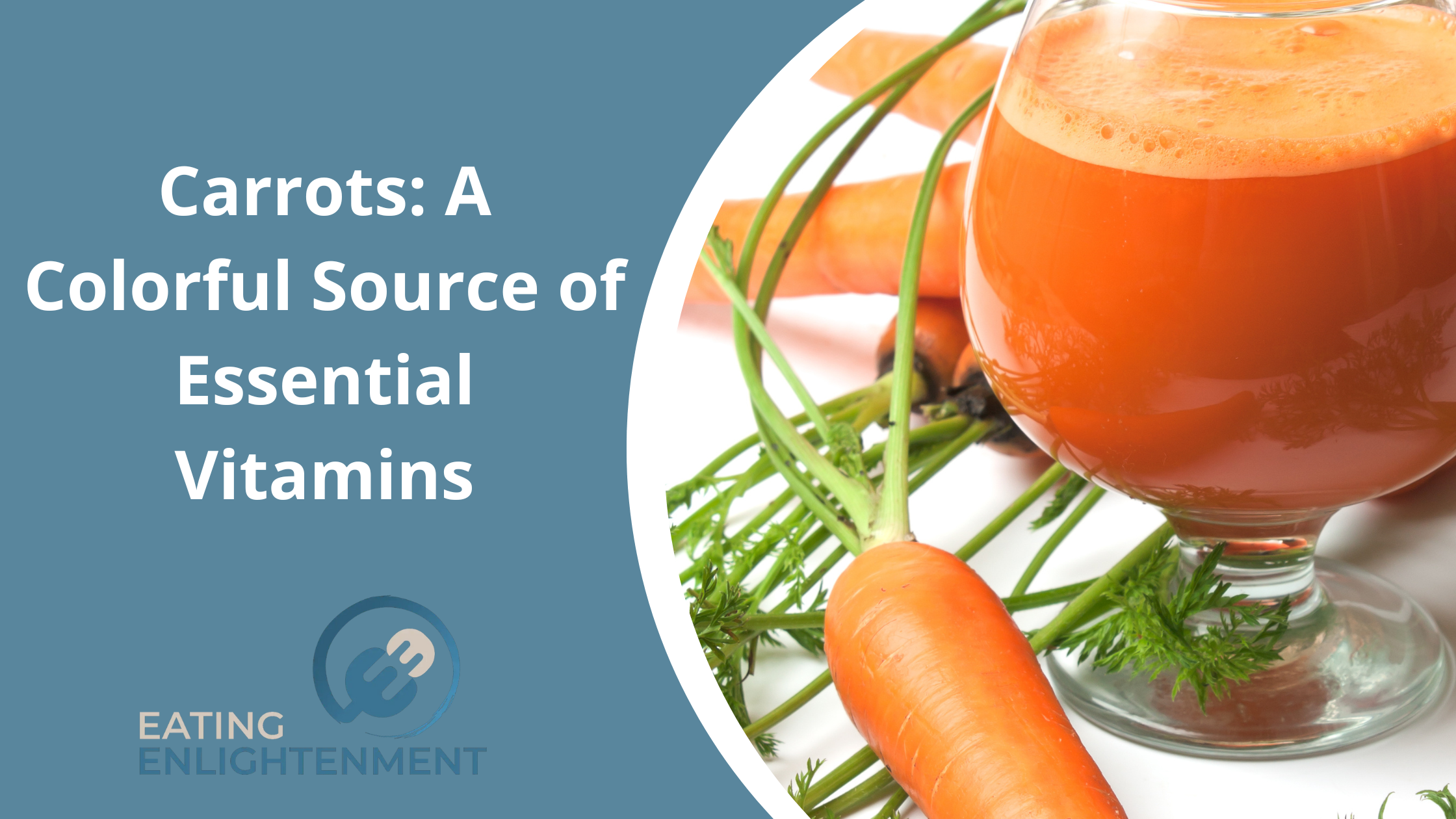Carrots have long been known for their nutritional properties. They are crunchy, delicious, and highly versatile, making them a go-to vegetable for many people.
Although commonly associated with improving vision, store carrots have much more to offer regarding vitamins and minerals. In this blog post, we will explore the various vitamins found in carrots and how they benefit your body.
Vitamins in Carrots
- Vitamin A – Vitamin A is often known as the ‘eye vitamin’ because it helps protect your eyes from age-related degeneration. Carrots are packed with beta-carotene, a type of Vitamin A that your body turns into retinol. Retinol is crucial for healthy eyesight, skin, immune system, and cell growth. A half-cup serving of cooked carrots contains over 400% of the recommended daily intake of Vitamin A.
- Vitamin K – Carrots are also rich in Vitamin K, which helps regulate blood clotting and promotes bone health. Vitamin K deficiency has been linked to an increased risk of fractures in older adults, so getting enough Vitamin K from your diet is essential. A one-cup serving of raw carrots contains approximately 16% of the recommended daily intake of Vitamin K.
- Vitamin C – Vitamin C is a powerful antioxidant that helps protect your cells from damage caused by free radicals. It also plays a significant role in collagen production, which keeps your skin and bones healthy. Carrots are a good source of Vitamin C, with a medium-sized chopped raw carrots providing approximately 7% of the recommended daily intake.
- Vitamin B6 – Vitamin B6 is essential for adequately functioning your nervous system and helps your body produce serotonin, a neurotransmitter that regulates mood and sleep. Carrots contain a small amount of Vitamin B6, with a half-cup serving providing approximately 5% of the recommended daily intake.
- Vitamin E – Vitamin E is a fat-soluble antioxidant that helps protect your cells from oxidative stress. It also supports immune health by helping your body fight infections and viruses. Although carrots are not a significant source of Vitamin E, they do contain small amounts that help contribute to your daily intake.
Is carrot rich in vitamin A or C?

You’re on the right track with your thinking! Carrots are indeed a powerhouse of nutrients. They’re primarily a vegetables known for being rich in Vitamin A.
A one medium-sized carrot contains over 200% of the daily value of Vitamin A. This vitamin is essential for good vision, a healthy immune system, and overall growth and development.
As for Vitamin C, carrots contain some, but not as much as Vitamin A. A medium-sized carrot has about 5% of the daily value of Vitamin C. This vitamin is essential for the growth and repair of body tissues and helps our bodies absorb iron.
So, next time you snack on a carrot, remember you’re giving your body a significant boost of Vitamin A and a little touch of Vitamin C, too!
What are the nutritional benefits of carrots?

Have you ever heard the saying, “Eat your orange carrots; they’re good for your eyes”? Well, there’s some truth to that! Carrots are packed full of essential nutrients that do wonders for our bodies. But just how good are they? Let’s dig in and find out.
- First, carrots are a fantastic source of beta-carotene, a type of vitamin A that helps maintain good vision and keeps our skin healthy. So eating carrots can help your eyesight! Isn’t that amazing?
- But that’s not all orange carrots. Yellow Carrots also have plenty of other vitamins and minerals like vitamin K for bone health, vitamin C for a robust immune system, and potassium to control blood pressure. Sounds pretty good.
- And guess what? There’s more! Ever feel a little sluggish? Carrots can help with that, too. They’re high in fiber, which aids in digestion and keeps us feeling full and energized.
So, next time you think about what to snack on, why not reach for a carrot? Your body will thank you for it!
What are the benefits of eating carrots?

- See Better: Carrots are full of Vitamin A, which helps our eyes work well. So, want to see better in the dark? Try eating more carrots!
- Healthy Skin: Want your skin to look its best? The antioxidants in carrots can help protect your skin from damage. So, say hello to that healthy glow!
- Stay Healthy: Looking for a natural way to fight colds and flu? Carrots have lots of Vitamin C, which can help your body fight off germs. So, why grab a carrot next time you feel under the weather?
- Heart Health: How about keeping your heart happy? Carrots are high in potassium, which is good for your heart. Isn’t it great that something as tasty as a carrot can also benefit your heart?
- Good Digestion: Want to keep your tummy happy? Carrots have lots of fiber, which helps keep your stomach working well. Is it nice to know that your favorite crunchy snack is also good for your tummy?
What Vitamins Are Carrots High In Conclusion
In conclusion, carrots are a colorful and nutrient-packed vegetable that can offer immense health benefits. They are a great source of essential vitamins such as vitamins A, K, C, B6, and E.
These vitamins are crucial in promoting healthy eyesight, bone health, and immune system function, amongst other things.
As you can see, incorporating carrots into your diet is a simple and effective way to boost your nutrient intake and enhance your overall health. So, next time you’re looking for a healthy snack, reach for crunchy, delicious baby carrots first!





